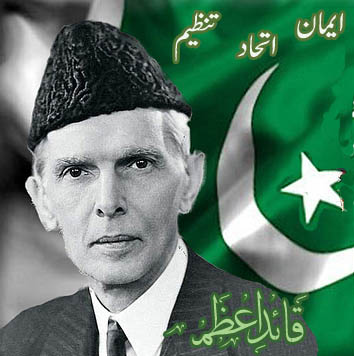Pakistan's Vision

Quaid-e-Azam Muhammad Ali Jinnah's vision for Pakistan was a welfare state where there was justice, equality and fair play. In his July 1, 1948 State Bank Address he set a clear direction on the future economy of Pakistan. He said that we must evolve banking practices compatible with Islamic ideas of social and economic life. The economic system of the West is a disaster. It has failed to do justice and to eradicate friction from the international field and it was largely responsible for the two world wars. The Western world, in spite of its advantages, of mechanization and industrial efficiency is today in a mess.
The adoption of Western economic theory and practice will not help us in achieving our goal of creating a happy and contended people. We must work our destiny in our own way and present to the world an economic system based on true Islamic concept of equality of manhood and social justice. We will thereby be fulfilling our mission as Muslims and giving to humanity the message of peace, which alone can save it and secure the welfare, happiness and prosperity of mankind. The ongoing economic crisis of America and Europe validates Jinnah’s observations.
In the address, he expected the State Bank to tackle increase in prices with success. He said that the abnormal rise in the cost of living has hit the poorer sections of society including those with fixed incomes very hard. The government should stabilize prices at a level that would be fair to the producer, as well as the consumer. Therefore, State bank should be returned under government control, replace western banking and economic system with Quaid’s envisaged economic and banking system to help public grow prosperous, strengthen Pakistan’s economy and return foreign loans and get rid of international donors.
Quaid-e-Azam wanted Pakistan to be a welfare state. On March 12, 1949, The Constituent Assembly of Pakistan adopted Objective Resolution, which contained principles for framing of the Constitution based on Islamic principles including welfare state. A welfare state strives hard to provide necessities of life like food, clothing, shelter and health services without any discrimination. The state is duty bound to do justice to everybody without favor or prejudice. It should help orphans, widows, the poor and the destitute from public fund. Good qualities of qchastity, integrity of character, mercy and compassion, forgiveness, fair play, modesty and humility, pleasant talk and politeness, sacrifice moderation, fraternity and brotherhood should be cultivated in the citizens. The state should provide free and compulsory education to all in the fields of social and cultural sciences, fine arts, physical sciences and take care of citizens character building through religious and moral instructions.
Quaid-e-Azam defined national character for national building. In his first speech delivered on 11th August 1947, before the Constituent Assembly of Pakistan, he spelled out the challenges that citizens and the state of Pakistan were supposed to address. These included maintenance of law and order; elimination of corruption and black-marketing; upholding merit and eliminating nepotism; defying all sorts of discrimination, rendering sacrifice for nation building; eschewing violence; devising a purpose directed education system; overcoming odds with force of character and working extremely hard for the cause of nation building.
Quaid-e-Azam repeatedly said that if the new state of Pakistan fails to alleviate poverty and better the lot of her people, the idea of establishing Pakistan will lose its justification. He said that poverty is a disgrace to civilization; it is an insult to humanity. It is the basis of human sufferings. It means ill health, disease and unemployment. Pakistan is a land of plenty, Allah has blessed Pakistan with fertile land, an excellent system of irrigation, a large variety of soils, climatic conditions suitable for all kinds of agriculture and inexhaustible minerals and human resources.
